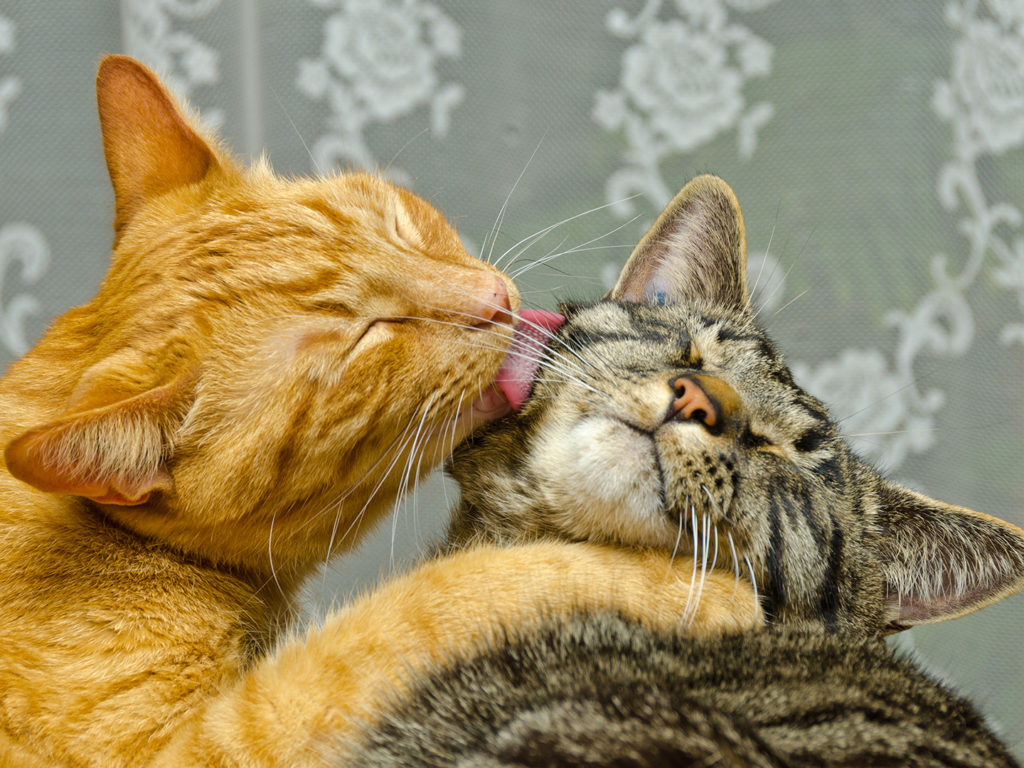When You Should—And Shouldn’t—Give Your Cat A Bath

Bath time is usually a stressful occasion for both pets and their owners, leading many to wonder—is bathing cats really necessary?
To the relief of many a cat owner, the answer is typically “no,” according to Dr. Alison Diesel, a clinical associate professor at the Texas A&M College of Veterinary Medicine & Biomedical Sciences.
“In general, cats do not need to be given a bath by their owners,” she said. “Their fastidious grooming behavior makes this a non-necessary task, which most owners are quite thankful for.”
Some cats may not groom themselves appropriately because of obesity, arthritis, or an underlying medical condition. If an owner notices any change in their cat’s normal grooming behavior, a veterinarian can help determine the cause.
But even if these kitties need some help getting clean, a true bath is usually not necessary unless the cat is especially dirty.
“A good brushing may be sufficient unless there are fecal/urinary incontinence concerns,” Diesel said. “I rarely recommend bathing for my feline patients. There are certain topical products that I may consider for cats, like a leave-on antiseptic mousse if they have a skin infection, but a true bath is typically not recommended or indicated.”
For many medical conditions, from fungal infections to allergies, a bath with a medicated shampoo can be a treatment option, but Diesel said owners should be confident in their ability to safely bathe their pet first.
Beyond cats’ ability to clean themselves, Diesel usually recommends not bathing cats because of the damages it can cause to a cat-owner relationship.
“The act of bathing cats can cause behavioral trauma, which may affect the human-animal bond if this is not something the cat is used to,” she said. “For an adult cat that has not had a bath previously, the experience can be quite traumatic. They may lash out, bite, and scratch; this obviously introduces safety concerns for the owners.”
Although most cats rarely need baths, one major exception is for hairless Sphynx cats, which require bathing as part of their routine skin care.
“For cat breeds like Sphynx in which there are known genetic conditions that cause them to produce and secrete an excess amount of skin oil, routine bathing can help decrease the extra debris and the chance of secondary skin infections,” Diesel said. “In general, though, this doesn’t need to be more than once every one to two weeks.”
Owners of Sphynx cats can make the bathing process easier and less stressful by introducing it when the cat is young.
“Getting a Sphynx kitten used to baths early in life is imperative for managing this breed,” Diesel said.
She recommends using lots of treats and making the experience as fun as possible to help the cat feel safe and stay calm.
For most cat owners, however, bath time is, thankfully, a rare experience. As long as your fastidious feline spends plenty of time on hygiene, like most cats tend to do, you should not have to worry about bathing your water-fearing friend any time soon.
Pet Talk is a service of the College of Veterinary Medicine & Biomedical Sciences, Texas A&M University. Stories can be viewed on the web at vetmed.tamu.edu/news/pet-talk. Suggestions for future topics may be directed to editor@cvm.tamu.edu.


